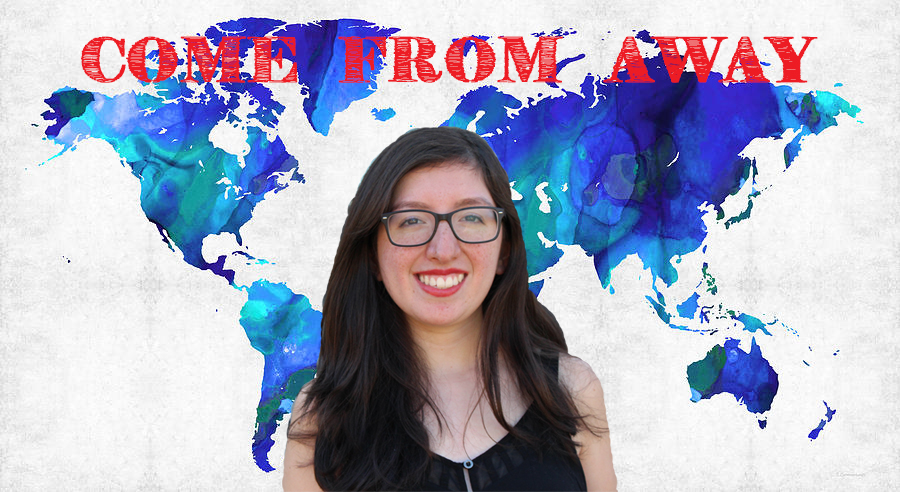

Imagine you are stepping out of the city bus and going to your room in residence. After a long day of class, you finally have time to check your phone messages.
Then, through the chat of your graduating class from high school, you find out your city just experienced an earthquake that registered 7.1 on the Richter scale.
This is what happened to Erika Ruiz, a first-year student from Mexico.
“I feel useless and I even cried because of it. I see how people are helping the affected ones by taking food and water to them and I can’t do that because I am here sitting, watching everything in the news. I would love to help everyone, so it is really frustrating,” Ruiz said.
Mexico experienced one of the biggest earthquakes in its history on Sept. 19. The earthquake’s epicentre was in the state of Morelos, approximately 120 km southeast from Mexico City, which was one of the most affected areas, along with Morelos and Puebla. The quake has left at least 292 dead people, and destroyed houses and buildings.
Coincidentally, on the same day in 1985, a quake had hit Mexico City, leaving it devastated. Because of other earthquakes between then and now, Mexico City uses an alarm system which notifies people when an earthquake is going to happen. This provides citizens the necessary time to find shelter and prepare.
This time, however, the quake hit the city so fast — because of the city’s proximity to the epicentre — the alarm didn’t signal until after the catastrophe.
Two weeks prior, another quake had taken place in Mexico City, and a couple of weeks before that, a hurricane had provoked floods. This earthquake only worsened the situation.
When Ruiz arrived to her room, she called her parents and relatives several times, but no one answered. She was growing anxious. Finally, her father responded: he was on the 10th floor of the hospital he works at, but he was fine.
However, her mother, Rocío, was in the family’s living room when it all happened. As soon as she felt the movement, she took Ruiz’s younger siblings and dog out of their apartment. A girl who was also in the street lent Rocío her cellphone to call her daughter, because there was no other way to contact her.
The structure of the building where Ruiz’s family lives was a little crackled on the side, but did not collapse.
“I would like to help my family. It is not enough that they tell you, ‘We are fine,’” Ruiz said.
“You want to be with them because what happened was really awful. My little brother and sister were shocked to see their city falling apart.”
Mexico City means a lot to Ruiz. When she thinks of it, she said three words that come to mind are
“historic, colorful and traffic.” The city is known for its hustle and bustle, nightlife, smog and culture, she said.
There are many museums where people can see painting of artists like Frida Kahlo and Diego Rivera, along with a wide variety of food and music and a downtown area with beautiful archaic architecture.
“If you ever want to feel that you are living in another era, go downtown,” Ruiz said.
Even though Ruiz loves Mexico City, she thinks it’s a very dangerous place.
“My parents have worked to give me the best, so I wanted to come to a place where both my parents knew I would be safe,” Ruiz said.
She plans to stay in Canada after graduation and maybe move to a bigger city, because she misses the boisterous city life, she said.
“If things were different [in Mexico City], I would come back, but I don’t think I will. I would like to live in a place where, if I have kids, I know they will be safe,” she said.
Ruiz said she believes the people of her home will overcome this catastrophe as one.
“Even if we are thrown to the ground, we will fly again. I feel that we can win against this. We have been doing it for a very long time.”
Come From Away is The Aquinian’s newest bi-weekly column about world issues and events, told through the perspective of students watching their homes from afar.
